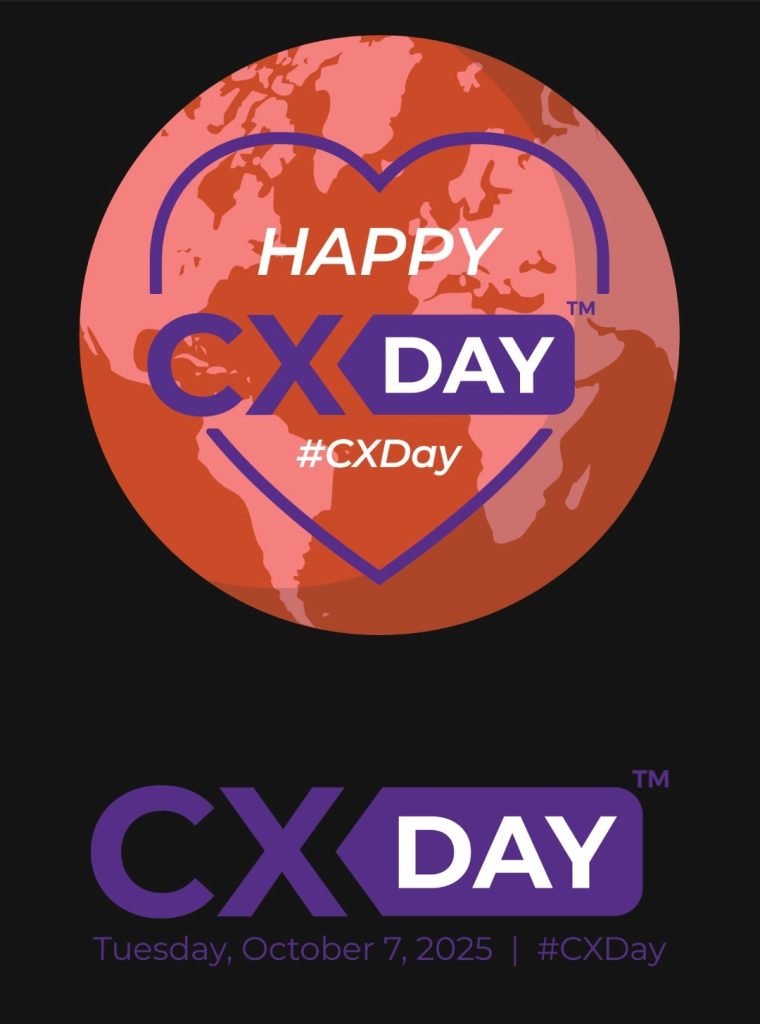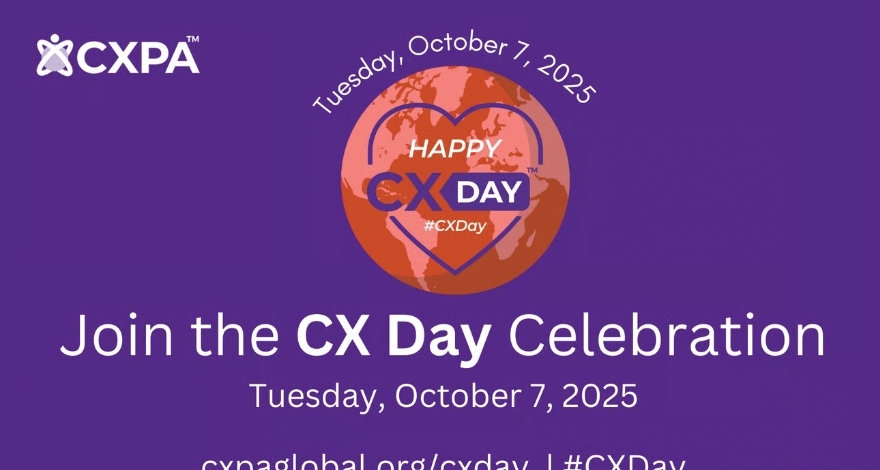Have you ever wondered why some companies effortlessly retain customers while others struggle? Moreover, what makes October 7th special for customer experience professionals worldwide? Furthermore, how are industry leaders preparing for CX Day 2025? These questions reveal the growing significance of customer experience in today’s business landscape.
CX Day represents far more than an annual celebration. Additionally, it serves as a strategic checkpoint for organizations evaluating their customer experience maturity. Most importantly, this year’s theme emphasizes the transformative power of AI-driven customer experiences.
The Evolution of CX Day: From Recognition to Revolution
Traditionally, Customer Experience Day emerged from the Customer Experience Professionals Association (CXPA) in 2011. Since then, it has evolved into a global phenomenon. Meanwhile, organizations worldwide use this day to spotlight their CX achievements and engage employees across departments.
This year marks a particularly significant milestone. Subsequently, CX Day 2025 promises unprecedented innovation through AI integration and human-centered design approaches. Furthermore, industry leaders are leveraging this opportunity to showcase proven business impact through their customer experience initiatives.
The celebration extends beyond simple recognition ceremonies. Instead, organizations are using CX Day to drive meaningful transformation. Consequently, companies are implementing comprehensive strategies that align employee experience with customer outcomes.
AI-Powered Personalization: The Game Changer of 2025
Artificial intelligence fundamentally transforms how businesses approach customer experience. Moreover, AI-powered personalization enables companies to craft unique customer journeys in real-time. This technological advancement represents the most significant CX trend of 2025.
Research indicates that 80% of customers prefer brands offering personalized experiences. However, only 74% of consumers currently receive adequate customization from their preferred brands. Therefore, this gap presents enormous opportunities for forward-thinking organizations.
Companies implementing AI-driven personalization strategies report remarkable results. For instance, Saks Global achieved a 7% increase in revenue per visitor through AI-powered personalized homepages. Similarly, Netflix leverages predictive analytics to recommend content, creating adaptive customer journeys that evolve continuously.
The impact extends beyond simple recommendations. Additionally, AI enables hyper-personalized experiences across multiple touchpoints. Consequently, businesses can anticipate customer needs through behavioral analysis and contextual understanding.
Omnichannel Excellence: Creating Seamless Customer Journeys
Modern customers expect consistent experiences across all touchpoints. Furthermore, 65% of customers report frustration when switching between channels requires starting their journey over. This challenge makes omnichannel integration crucial for CX success.
Effective omnichannel strategies require four essential components. First, unified customer data management consolidates information from multiple channels. Second, simple martech integration enables seamless data exchange between systems. Third, customer journey mapping identifies key touchpoints and optimization opportunities. Fourth, comprehensive reporting tracks customer interactions across all platforms.
Companies excelling in omnichannel experiences see significant returns. Specifically, organizations report 10% revenue increases and 25% improvements in customer retention. Moreover, these businesses achieve 89% customer retention rates compared to companies using traditional approaches.
The key lies in creating connected experiences rather than isolated interactions. Therefore, successful omnichannel strategies focus on consistency, personalization, and seamless integration across all customer touchpoints.
Employee Experience: The Hidden Driver of Customer Success
Employee experience directly impacts customer satisfaction and business outcomes. Research demonstrates that satisfied employees create better customer experiences. Additionally, companies with highly aligned CX and employee experience teams report 1.6 times faster revenue growth.
The connection between employee and customer experience operates through several mechanisms. Initially, engaged employees deliver more empathetic service to customers. Subsequently, positive workplace cultures translate into authentic customer interactions. Finally, empowered employees feel motivated to exceed customer expectations.
Organizations leading in both employee and customer experience consistently outperform competitors. Furthermore, these companies demonstrate 2.8 times higher likelihood of being viewed as great places to work. Therefore, CX Day 2025 celebrations increasingly focus on recognizing employee contributions to customer success.
Progressive companies are implementing integrated approaches to employee and customer experience. Consequently, they map employee journeys alongside customer touchpoints to identify improvement opportunities. This strategy creates virtuous cycles where satisfied employees generate satisfied customers.
Emerging Technologies Reshaping Customer Experience
Beyond AI personalization, several technologies are transforming customer experience landscapes. Firstly, agentic AI systems act as intelligent copilots for customer service representatives. These advanced systems reason, strategize, and execute actions autonomously while supporting human agents.
Conversational AI continues evolving to provide more sophisticated customer interactions. Moreover, 76% of consumers still prefer human interaction for complex situations. Therefore, successful implementations balance automation with human touch.
Virtual and augmented reality technologies are creating immersive customer experiences. Additionally, 3D digital avatars represent the next frontier in customer engagement. These technologies combine AI, advanced graphics, and holographic capabilities to create lifelike customer interactions.
Voice of the customer programs are expanding beyond traditional feedback channels. Furthermore, only 22% of customers provide direct feedback after negative experiences. Consequently, companies are monitoring social media and third-party review sites for comprehensive sentiment analysis.
CX Day 2025: Global Celebrations and Industry Recognition
This year’s CX Day celebrations span multiple continents and industries. The Customer Experience Professionals Association is hosting hybrid events, including in-person gatherings in Nashville and virtual experiences for global participants. These events feature industry experts sharing insights about latest CX trends and best practices.
Award programs recognize organizations demonstrating proven business impact through customer experience initiatives. The CXPA Impact Awards spotlight companies that deliver measurable outcomes for customers, employees, and organizations. Winners demonstrate significant improvements in revenue growth, profitability, customer retention, and operational efficiency.
Conference organizers are hosting specialized events focusing on AI-powered customer experiences. For example, the CX Future Vision Summit in India explores “Leveraging the Power of AI for a Future-Ready CX”. These gatherings bring together CMOs, CTOs, and CX leaders to discuss cutting-edge strategies.
Best Practices for CX Day Implementation
Organizations planning meaningful CX Day celebrations should implement several strategic approaches. Initially, companies can organize workshops focusing on customer experience best practices. These sessions should cover empathy in customer interactions, feedback management, and handling difficult situations.
Recognition programs celebrating outstanding employees drive engagement and motivation. Additionally, sharing success stories company-wide inspires others to prioritize customer satisfaction. These initiatives create positive momentum for ongoing CX improvements.
Cross-functional collaboration enhances CX Day impact significantly. Furthermore, involving marketing, product, finance, and HR teams ensures comprehensive customer experience alignment. This approach breaks down organizational silos and creates shared accountability for customer outcomes.
Companies should leverage CX Day to gather customer feedback and employee insights. Moreover, conducting customer experience consulting sessions provides external perspectives on improvement opportunities. These activities generate actionable strategies for enhancing customer relationships.
Measuring CX Success: Metrics That Matter
Effective customer experience measurement requires comprehensive approaches beyond traditional surveys. Trust emerges as the most important driver of customer advocacy, surpassing speed and affordability. Therefore, organizations must prioritize transparent communication and reliable service delivery.
Companies are shifting from reactive to proactive measurement strategies. Additionally, 47% of customers experience communication issues with brands, indicating low trust levels. Consequently, businesses must monitor diverse channels for comprehensive customer sentiment analysis.
Financial metrics demonstrate customer experience return on investment effectively. Organizations focusing on CX report 80% revenue increases compared to competitors. Moreover, customer-centric companies achieve 4-8% higher revenue growth than market averages.
Advanced analytics enable predictive customer experience management. Furthermore, AI-powered measurement tools identify potential issues before they impact customer satisfaction. This proactive approach reduces customer churn and increases lifetime value significantly.

Future Outlook: Beyond CX Day 2025
Customer experience will continue evolving rapidly beyond 2025. Hyper-personalization will become standard expectation rather than competitive advantage. Additionally, companies must balance technological innovation with human empathy to maintain authentic customer relationships.
The integration of employee and customer experience will deepen further. Subsequently, organizations will develop comprehensive Total Experience (TX) strategies encompassing customer, employee, user, and multi-experience elements. This holistic approach ensures positive interactions for all stakeholders.
Ethical AI deployment will gain increasing importance as regulations expand. Moreover, companies must master compliant AI implementation while maintaining personalization effectiveness. This balance requires careful consideration of privacy concerns and transparency requirements.
Workforce transformation will accelerate as AI automates routine tasks. Therefore, organizations must invest in upskilling programs to prepare employees for evolving roles. Success depends on combining AI efficiency with uniquely human capabilities like creativity and emotional intelligence.
Taking Action: Your CX Day 2025 Strategy
CX Day 2025 presents an opportunity for organizations to evaluate and enhance their customer experience strategies. Begin by assessing current CX maturity levels across all customer touchpoints. Additionally, identify gaps between employee experience and desired customer outcomes.
Develop integrated measurement frameworks connecting CX initiatives to business results. Furthermore, establish cross-functional teams responsible for implementing omnichannel customer experiences. These groups should include representatives from marketing, technology, operations, and human resources.
Invest in AI-powered personalization technologies while maintaining human-centered design principles. Moreover, create employee engagement programs that align with customer experience objectives. This dual focus ensures sustainable improvements in both areas.
Plan ongoing CX Day celebrations that extend beyond annual events. Subsequently, implement quarterly reviews of customer experience metrics and employee satisfaction scores. Regular assessment enables continuous improvement and maintains momentum for customer-centric transformation.
The future of customer experience lies in organizations that successfully balance technological innovation with human empathy. CX Day 2025 marks a pivotal moment for businesses ready to embrace this transformation and create lasting competitive advantages through exceptional customer experiences.

